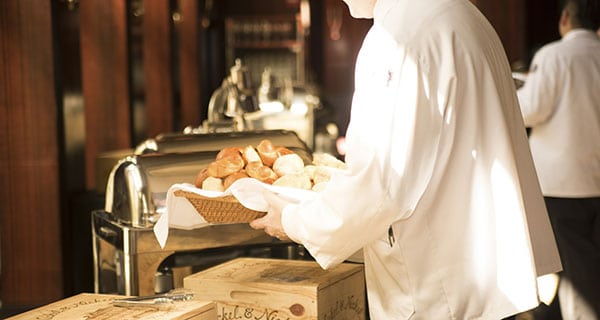 Alberta’s foodservice industry recently reported record sales in 2018, but Restaurants Canada warns that people should not be fooled by that.
Alberta’s foodservice industry recently reported record sales in 2018, but Restaurants Canada warns that people should not be fooled by that.
In fact, it said, adjusted for menu inflation, year-over-year sales have been declining for the average restaurant since 2015.
“This has troubling implications for communities across Alberta,” said Mark von Schellwitz, Restaurants Canada Vice President, Western Canada. “The foodservice sector is the province’s third-largest employer and number one provider of first-time jobs for youth.”
The organization said operational cost increases from government policy changes, combined with a weak provincial economy, have contributed to the following setbacks for Alberta’s foodservice job market between 2015 and 2018:
- A loss of 10,000 foodservice and accommodation jobs;
- A decline in the average number of workers per unit from 13 to 11.7; and
- A 5.1 per cent decrease in the average weekly hours for foodservice workers
Restaurants Canada shared 16 policy recommendations with Alberta’s four major political parties on Jan. 14 in the hopes that they would be incorporated into all their platforms in the lead up to the next provincial election.
A complete listing of these recommendations can be found at restaurantrealities.ca,
As the provincial election nears on April 16, the organization is convening a media roundtable discussion for Friday on the urgent need for solutions to what it calls Alberta’s foodservice crisis.
Leslie Echino, owner of Blink restaurant on Stephen Avenue in Calgary for 11 and a half years, has seen many ups and downs in the city’s economy. She also has owned Bar Annabelle, right next door to Blink, for about a year and a half.
“I have 30 full-time employees at the restaurant. I have benefits for every single employee which is very uncommon in the hospitality industry but it’s a way to keep them in our industry because I think a lot of people leave the restaurant industry because they don’t have that stability or benefits,” said Echino, who will be part of Friday’s roundtable discussion.
But she said many restaurants are facing “a death of a thousand cuts” and it’s tough for many businesses in “such a low profit margin industry.”
Recently, Restaurants Canada said more than a third of Alberta’s restaurants are considering closing their doors due to mounting cost pressures which include an elevated minimum wage in the province, the carbon tax, rising expenses.
A survey by the organization found:
- 35 per cent of respondents said they have considered closing up shop following recent changes to provincial labour legislation;
- 94 per cent have increased menu prices as a result of minimum wages going to $15 per hour in October 2018;
- 88 per cent have decreased staff hours;
- 61 per cent have hired fewer youth for entry-level positions;
- 46 per cent have laid off staff; and
- 26 per cent have explored self-service solutions like touch pads and kiosks.
Mario Toneguzzi is a Troy Media business reporter based in Calgary.
The views, opinions and positions expressed by columnists and contributors are the author’s alone. They do not inherently or expressly reflect the views, opinions and/or positions of our publication.


